Event
Digital Humanities 2020
The theme of the conference is “carrefours/intersections,” a place where paths cross. The theme recalls the geographical and cultural heritage of Ottawa, a bilingual city in unceded Algonquin territory. Three specific sub-disciplinary interests will guide our use of the theme: First Nations, Native American, and Indigenous Studies; public digital humanities; and the open data movement.

First Nations, Native American, and Indigenous Studies is an interdisciplinary field exploring the history, culture, politics, issues, and contemporary experiences of indigenous peoples. As a constellation of humanities and social science disciplines, the conference should be guided by the following principles:
- be grounded in land, region, and community
- recognize the sovereign status of First Nations, Native American, and Indigenous Communities
- be polyvocal, recognizing that important community voices must be incorporated in the conference
- problematize language and hierarchical structures including being reciprocal with the community involved in the conference
- be tied to contemporary peoples and events including serving the needs of the community
- recognize indigenous data sovereignty as key to the continuing vitality of Native communities
- analyzes the historical and continued impacts of colonialism, postcolonialism, and hegemony
Public Digital Humanities reflects many of these same values:
- start with humans, not technologies or tools
- be continuously co-constructed
- encourage inclusion rather than exclusion; intellectualism rather than anti-intellectualism
- support a lack of hierarchies
- encourage kindness within critical engagement
- note the importance of working collectively, positively, and with generosity
- supports positive and fruitful partnerships with the public beyond the academy
The open data movement encourages us to:
- enable the dissemination of scholarship both in-process and in its final form
- share with one another
- assign attribution and credit fairly
- consider Open Access, Open Source, Open Scholarship, and Open Standards practices as it relates to digital projects and their research outputs
- encourage universal participation of all potential conference attendees
- consider economic accessibility of the conference
Information related to Digital First Nations, Native American, and Indigenous Studies is drawn from the Digital Native American and Indigenous Studies project as well as the University of Ottawa and Carleton University First Nations programs. Information associated with Public Digital Humanities theme is credited to Jesse Stommel, The Public Digital Humanities, Disrupting the Digital Humanities..
Information
See also
DHOx2020 ONLINE EVENT: Registration now open
Due to COVID-19, sadly the Digital Humanities Oxford Summer School cannot run in its usual format this year. Instead we are pleased to offer an online event, DHOx2020, from 13-15 July, which will run on Zoom. The online event is open to all, with a small registration fee to cover running costs.
Cultures of Dissent in Eastern Europe (1945-1989): Research Approaches in the Digital Humanities
This 7-day seminar in digital humanities research methods is designed to expose a new generation of scholars in Cold War history and culture to methods of analysis and discovery involving computational techniques. Designed and run by NEP4DISSENT (New Exploratory Phase in Research on East European Cultures of Dissent), COST Action 16213, the inspiration for the course is built around the transfer of knowledge from technologists and data scientists to humanists.
PUBMET2020 / The 7th Conference on Scholarly Communication and Publishing in the Context of Open Science
We welcome you to take part in PUBMET2020 conference, which strives to present and discuss the plurality of approaches to the scholarly communication, scholarly publishing and assessment (metrics). It will present innovative approaches, best practice discussions and take on future challenges. (http://pubmet.unizd.hr/pubmet2020/)
THE 1ST BIAŁYSTOK CONFERENCE ON THEORETICAL AND APPLIED LINGUISTICS
In recent years linguistic conferences organized by the Białystok circle of neophilologists have established a strong tradition in terms of providing a forum for the exchange of views on the nature of language. It all started almost fifteen years ago, in 2002. The main aim of the conferences was to provide a meeting ground for a wide range of scholars: linguists, literary scholars, foreign language teaching methodologists, to mention but a few groups of researchers participating in the events. The conferences explored the relationship between language, culture, and social interaction. They were often organized in co-operation with French language scholars.